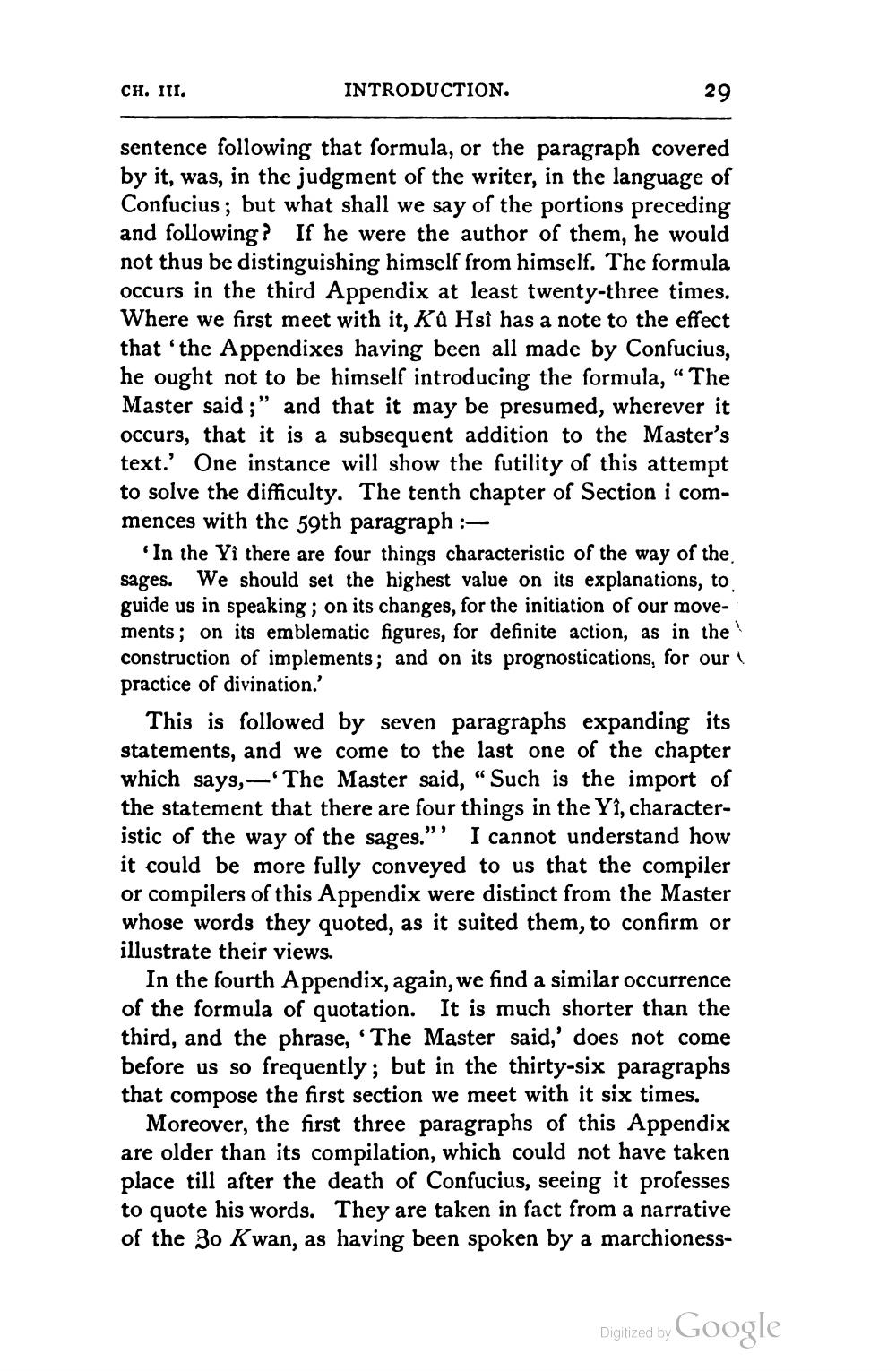________________
CH. III.
INTRODUCTION.
29
sentence following that formula, or the paragraph covered by it, was, in the judgment of the writer, in the language of Confucius; but what shall we say of the portions preceding and following? If he were the author of them, he would not thus be distinguishing himself from himself. The formula occurs in the third Appendix at least twenty-three times. Where we first meet with it, Ka Hsî has a note to the effect that 'the Appendixes having been all made by Confucius, he ought not to be himself introducing the formula, “The Master said ;” and that it may be presumed, wherever it occurs, that it is a subsequent addition to the Master's text.' One instance will show the futility of this attempt to solve the difficulty. The tenth chapter of Section i commences with the 59th paragraph :
'In the Yi there are four things characteristic of the way of the sages. We should set the highest value on its explanations, to guide us in speaking ; on its changes, for the initiation of our movements; on its emblematic figures, for definite action, as in the construction of implements; and on its prognostications, for our practice of divination.'
This is followed by seven paragraphs expanding its statements, and we come to the last one of the chapter which says,—'The Master said, "Such is the import of the statement that there are four things in the Yî, characteristic of the way of the sages."' I cannot understand how it could be more fully conveyed to us that the compiler or compilers of this Appendix were distinct from the Master whose words they quoted, as it suited them, to confirm or illustrate their views.
In the fourth Appendix, again, we find a similar occurrence of the formula of quotation. It is much shorter than the third, and the phrase, 'The Master said,' does not come before us so frequently; but in the thirty-six paragraphs that compose the first section we meet with it six times.
Moreover, the first three paragraphs of this Appendix are older than its compilation, which could not have taken place till after the death of Confucius, seeing it professes to quote his words. They are taken in fact from a narrative of the Zo Kwan, as having been spoken by a marchioness
Digitized by Google




